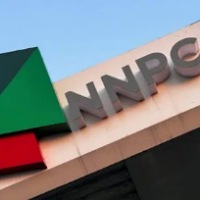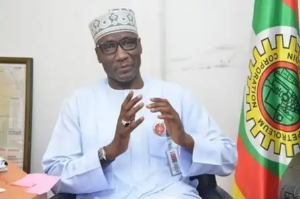Gas
Nigeria set to build longest gas pipeline as flaring drops to 11 percent

By Joseph BAMIDELE
ABUJA – AS part of efforts at ensuring steady supply of gas to meet up with growing market demand of the product, the Federal Government of Nigeria is planning to construct the longest pipeline in the country from Calabar via Ajaokuta to Kano State.
This was disclosed by the Honorable Minister of Petroleum Resources, Mrs Diezani Alison-Madueke while delivering a paper titled: “Encouraging Investment in Gas Production, Supply and Consumption” at a 3-day National Conference on Gas Resources organized by the Senate Committee on Gas Resources in Abuja.
“By the end of the year, we will be commencing, via Public Private Partnership (PPP) scheme, the nation’s longest pipeline from Calabar via Ajaokuta to Kano State,” Alison-Madueke stated.
Represented by the Group Managing Director of the Nigerian National Petroleum Corporation (NNPC), Engr. Andrew Yakubu, the Minister said that at present the Federal Government was constructing the strategic East-West pipeline while the Lagos end segment of the Escravos to Lagos Pipelines System (ELPS) is nearing completion.
She explained that almost 500km of new gas pipelines have been completed and commissioned including the doubling of the capacity of the EPLS between Escravos and Oben and the extension from Oben to Geregu and River Imo to Alaoji respectively.
The Minister said that by the end of 2018, the backbone pipeline infrastructure for gas would have been delivered, concluding an initial phase of over 2500km of gas pipeline infrastructure development.
She said that government was strategizing to leverage on the full potential of gas to achieve massive impact on the economy and the national Gross Domestic Product (GDP).
“We are focused on jumpstarting gas supply to enable usage in gas to power, gas based industrialization, compressed natural gas for transportation and commercial usage, cooking gas for domestic usage and regional pipeline for gas export,” the Minister stated.
She said that for government to support the aggressive short-term demand growth in the power sector, a domestic gas supply obligation regulation which mandates a certain amount of gas supply for the domestic market pending the full maturation of the market was introduced.
She expressed confidence that the market will ultimately drive itself for supply growth, adding that the long run expectation is for less dependence on supply via obligation.
In order to boost investor confidence in natural gas in the country, she said government has reviewed the contractual framework for gas through the development of world-class standardized gas supply agreements in addition to Network Code which governs the flow of gas across the nation’s pipeline network and provides rules for open access.
She said that the use of natural gas instead of petrol has translated into significant savings for over 4000 taxi drivers in Benin who are already using this alternative energy source.
In the same vein, the Minister said that the federal government’s efforts at eliminating gas flaring is making significant impact as flare out rate dropped from 25% to 11% of production.
“Many of the International Oil Companies (IOCs) are fast approaching full flare out as the gas obligation and infrastructure growth have all combined to enable utilization of hitherto flared gas,” Madueke stated.
She finally called on all stakeholders to put more effort towards full market liberalization and address the very urgent challenge of increasing supply to the power sector.
Speaking in similar vein, the Group Managing Director of NNPC, Engr. Andrew Yakubu, while presenting a paper titled: “Nigeria’s Gas Resources, Current and Future Expectations”, at the Conference put the country’s current gas production at about 8.5 billion cubic feet per day (bcf/d).
He explained that of the total production, 3.5bcf/d (41%) is exported, 2.3 bcf/d (28%) is consumed domestically for power and industries, 1.2 bcf/d (15%) is used in the upstream for gas re-injection and balance of 0.8bcf/d (10 per cent) is flared.
In her welcome address, the Chairman Senate Committee on Gas Resources, Senator Nkechi Nwaogu, said that Nigeria with per capita consumption of natural gas put at about 1.06kg, ranks lowest in Africa with only 5 per cent of her citizens having access to domestic gas.
She explained that the aim of the conference was to look at ways of filling the huge gap between gas production and utilization in the country as well as reducing routine gas flaring for the benefit of the nation and its citizens.
Gas
Platform Petroleum targets a billion-dollar investment

Announces ambitious expansion plans
Platform Petroleum says the company is targeting a billion-dollar investment as it announces an ambitious strategic plan to bring 3 marginal fields into production by 2025, with a target of 10,000 barrels of oil and at least 50 billion standard cubic feet of gas per day.
Speaking on the sidelines of the 2024 Offshore Technology Conference (OTC) in Houston, USA, Chief Dumo Lulu-Briggs, Chairman of Platform Petroleum said that the company has scheduled a roadshow in London this June 2024 to raise extra funding to finance their ambitious expansion plans.
“The upcoming roadshow aims to attract equity partners and prepare for future opportunities, targeting a billion-dollar investment. We are seeking partners ready to invest in Nigeria’s oil and gas potential.
Our goal is to showcase the country’s vast opportunities and its potential to international investors” Lulu-Briggs said.
Platform Petroleum’s roadshow in London will highlight the company’s efficient production, upgraded flow stations, increased capacity, and achievements in nearly zero emissions.
With about one percent gas flare currently, Platform aims for zero gas flares by the last quarter.
“Nigeria is a vast market, and Platform Petroleum is thinking big. With the government’s ambitious plans, such as the Lagos-Calabar coastal line, Platform is poised for growth; pushing itself to the next level, building on a strong foundation and following Seplat’s successful precedent”, Lulu-Briggs said.
Despite being a small company, he emphasized that Platform Petroleum has demonstrated significant success and efficiency, showcasing that smaller oil and gas entities can indeed achieve remarkable feats adding that he believes that the company deserves recognition and more assets.
“Platform Petroleum is ambitious, aspiring to become a tier-1 company akin to international oil companies (IOCs) or a tier-2 company like Seplat. Interestingly, Seplat originated from Maurel & Prom, Shebah Petroleum, and Platform Petroleum, and today stands as a major player in the industry.
This history underlines Platform’s potential for substantial growth”, Lulu-Briggs said.
Furthermore, the Platform Petroleum Chairman said that the Offshore Technology Conference (OTC) is a crucial event for promoting Nigeria’s significant market potential.
“Partnering with the Petroleum Technology Association of Nigeria (PETAN) at OTC is key to attracting investment. The current proactive government understands the necessity for economic growth, and Platform is prepared to leverage every opportunity in the oil and gas industry to contribute to this expansion”, he concluded.
Breaking News
NNPC JV Unveils New Crude Oil Grade ‘Nembe’, Commences Exports With 1,900 Barrels

Precious ADELOLA
The NNPC/Aiteo Joint venture has announced the introduction of Nembe Crude Oil Grade, a new crude oil grade into the international crude oil market.
The announcement of the Nembe Crude Oil Blend, produced by Aiteo, the Operator of the NNPC/Aiteo Oil Mining Lease (OML) 29 Joint Venture (JV), was made at the ongoing Argus European Crude Conference in London, on Tuesday.
OML 29, an asset located onshore Nigeria, is operated by Aiteo Eastern Exploration & Production Ltd, Africa’s leading indigenous hydrocarbon producer, following a historic acquisition from Shell in 2014.
The Nembe Crude was previously blended with the popular Bonny Light grade and exported via the Bonny Oil & Gas Terminal.
The unique selling point of the Nembe Crude Oil grade with an API gravity was highlighted by both the Aiteo E & P and NNPC Limited Leadership at the Argus Conference in London.
The Nembe Crude Oil grade also has a low sulphur content and low carbon footprint due to flare gas elimination, fitting perfectly into the required spec of major buyers in Europe.
Two cargoes of 950,000 barrels each of the Nembe Crude Oil grade have since been exported to France and the Netherlands. With its attractive Assay of API 29 and low sulphur content, the Nembe Crude Oil grade commands a premium to the global Brent benchmark.
With the NNPC-Aiteo OML 29 JV back on-stream, Nigeria now boasts of an additional crude oil export of 2 Cargoes at 950,000 barrels each per month and 1.2 Bcf of export gas monthly.
This remarkable achievement signals the commencement of activities at Nigeria’s newest crude oil terminal, the Nembe Crude Oil Export Terminal (NCOET), which was licensed in line with the extant laws and Crude Oil Terminal establishment regulations.
The terminal was conceived as a Floating Storage and Offloading Vessel (FSO) with a storage capacity of two (2) Million Barrels and the ability to offload crude oil to any export tanker from AFRAMAX to Very Large Crude Carriers (VLCC).
It has a loading capacity of 25,000 barrels per hour and will be exporting over 3.6 million barrels of Crude oil monthly at full scale of operation.
Currently, hydrocarbon production from OML 29, which was hitherto constrained due to evacuation challenges owing to the security issues around the Nembe Creek Trunk Line (NCTL) corridor, has now been resolved through a collaborative and creative approach that led to the innovation of the Alternative Crude Oil Evacuation Solution.
The Argus European Crude Conference 2023 in London is a gathering of energy majors, refiners, NOCs, traders, financial institutions, and other representatives from across the global oil markets. The event also provides a critical opportunity for business leaders to connect, discuss, share and learn from one another.
Business
NNPCL, NCDMB, Oil Majors Agree Improved Efficiencies

Modupe Asudo
Major players in the oil and gas sector in Nigeria led by the Nigerian National Petroleum Company Limited (NNPCL) have covenanted to optimise operations by reducing contracting cycle to not more than 180 days.
A statement issued by the company disclosed that the Memorandum of Understanding (MoU) to this effect was endorced on Monday in Abuja at the company’s head office.
Other parties to the the contract include, the Nigerian Content Development and Monitoring Board, (NCDMB) and international oil companies.
Biztellers reports that an optimised contracting cycle was expected to improve the ease of doing business, reduce cost and drive efficiency, which would eventually translate to production growth, increased revenues, and ultimately improved profitability.
In addition, the MoU was expected to contribute significantly to the double-digit economic growth rate agenda of the Federal Government and generate value for all stakeholders, including investors, companies, host communities and Nigeria.
Notable elements in the framework of the MoU, going by the statement, included a reduction of the contracting cycle for open competitive tender, selective tender, and single sourcing tender to 180, 178, and 128 working days respectively.
This was in contrast with the current best effort performance of 327, 333, and 185 working days respectively.
According to Group Chief Executive Officer, NNPCL, Mele Kyari, signing the agreement portends exciting times for Nigeria’s oil and gas industry, in addition to standing as a bold testimony that the company was plunging into the future of hope, productivity and success.
Kyari, represented at the occasion by Executive Vice President, Upstream, NNPCL, Oritsemeyiwa Eyesan, pointed out that with oil and gas as the bedrock of Nigeria’s economy, there was need to get the contracting process in the Industry right so as to get the economy back on track.
In his remarks, Executive Secretary, NCDMB, Simbi Wabote, described the MoU as a way forward and a critical step towards enhancing the nation’s crude oil production.














